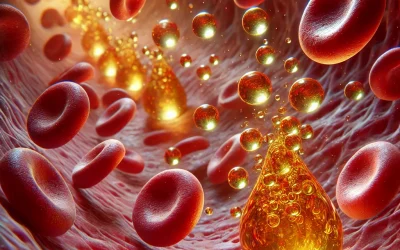1. Introduction
- Brief overview of diabetes and the importance of managing fat metabolism.
- Purpose and scope of the article.
2. Understanding Diabetes and Fat Metabolism
- Explanation of diabetes types (Type 1, Type 2, Prediabetes).
- Relationship between insulin resistance, blood sugar control, and fat metabolism.
3. Role of Dietary Fats in Diabetes Management
- Importance of fats in blood sugar stabilization and insulin sensitivity.
- Differentiation between good (healthy) fats and bad (unhealthy) fats.
4. Healthy Fats and Supplements: How to Incorporate Them
- Omega-3 Fatty Acids
- Medium-Chain Triglycerides (MCT Oil)
- Conjugated Linoleic Acid (CLA)
- Avocado and Avocado Oil
- Extra Virgin Olive Oil
- Nut and Seed Butters
- Cacao and Dark Chocolate (80%+ Cocoa)
- Ghee (Clarified Butter)
5. How to Properly Integrate Healthy Fats (Best Practices)
- Dosage and recommended amounts.
- Optimal timing for consumption.
- Combinations with other foods for balanced meals.
6. Common Mistakes (How Not To)
- Overconsumption of fats.
- Choosing highly processed fat sources.
- Ignoring carbohydrate and protein balance.
7. Effects of Healthy Fats and Supplements on Diabetes
- Table summarizing benefits, recommended dosages, and precautions.
| Fat/Supplement | Primary Benefits | Recommended Daily Intake | Diabetes Considerations |
|---|---|---|---|
| Omega-3 Fatty Acids | Improved insulin sensitivity, reduced inflammation | 1000-2000mg EPA+DHA | Monitor for blood-thinning effects |
| MCT Oil | Immediate energy, enhanced ketone production | 1-3 teaspoons/day | Can aid in weight management but start gradually |
| CLA | Reduced body fat, improved body composition | 1-3 grams/day | May improve insulin sensitivity |
| Avocado Oil | Stable blood sugar, reduced inflammation | 1-2 tablespoons/day | Caloric density; moderation advised |
| Extra Virgin Olive Oil | Improved insulin function, anti-inflammatory | 1-3 tablespoons/day | Beneficial but caloric; moderation necessary |
| Nut/Seed Butters | Sustained energy, stabilizes blood glucose | 1-2 tablespoons/day | Choose unsweetened to avoid sugars |
| Dark Chocolate (80%+) | Antioxidant properties, supports insulin sensitivity | 20-30 grams/day | Choose low-sugar options |
| Ghee | CLA content, supports fat metabolism | 1 tablespoon/day | Monitor portion size due to caloric content |
8. Complementary Lifestyle Factors
- Exercise recommendations to enhance fat metabolism.
- Sleep and stress management’s role in fat metabolism and diabetes control.
9. Conclusion
- Summary of key points.
- Encouragement for consistent dietary practices and lifestyle habits.
1. Introduction
Diabetes is a chronic metabolic condition characterized by elevated levels of blood glucose (sugar). It occurs either when the pancreas does not produce sufficient insulin or when the body becomes resistant to insulin. Proper management of diabetes is crucial, as persistent high blood sugar can lead to serious health complications, including cardiovascular disease, nerve damage, kidney failure, and vision problems.
Diet plays a fundamental role in diabetes management, particularly concerning fat intake and metabolism. Healthy fats and certain supplements can significantly influence insulin sensitivity, glucose metabolism, and overall metabolic health. Integrating appropriate types of fats into the diet can enhance the body’s ability to burn fat for energy, thereby assisting individuals in maintaining stable blood sugar levels and healthy weight.
This article explores how dietary fats and specific supplements can aid diabetes management by improving fat metabolism. It also addresses common pitfalls in dietary fat consumption and provides practical advice for effectively integrating beneficial fats into daily nutrition routines.
2. Understanding Diabetes and Fat Metabolism
Diabetes primarily exists in three forms: Type 1 diabetes, Type 2 diabetes, and prediabetes. Type 1 diabetes is an autoimmune condition where the body attacks insulin-producing cells in the pancreas, leading to little or no insulin production. Type 2 diabetes, the most common form, occurs when the body develops insulin resistance, causing glucose to accumulate in the blood. Prediabetes represents elevated blood glucose levels that aren’t high enough for a diabetes diagnosis but indicate significant risk.
Fat metabolism plays a critical role in diabetes. Insulin resistance, common in Type 2 diabetes and prediabetes, impairs the body’s ability to efficiently metabolize fats. This results in increased fat storage and decreased fat utilization for energy. Effective fat metabolism can improve insulin sensitivity, stabilize blood glucose, and reduce associated health risks. By understanding and managing the interaction between dietary fats and insulin function, individuals can significantly enhance their diabetes management strategy.
3. Role of Dietary Fats in Diabetes Management
Dietary fats are essential for overall health, playing key roles in hormone production, nutrient absorption, and cellular function. However, the type of fats consumed is crucial, especially for those managing diabetes. Healthy fats such as monounsaturated fats (found in olive oil, avocado, and nuts) and polyunsaturated fats (especially omega-3 fatty acids from fish and flaxseeds) have beneficial effects on insulin sensitivity, inflammation, and metabolic health.
Unhealthy fats, including saturated fats and trans fats often found in processed and fried foods, can negatively impact insulin sensitivity and contribute to inflammation and weight gain. Managing the type and quantity of fats consumed can significantly influence diabetes outcomes by stabilizing blood glucose levels, reducing inflammation, and improving overall metabolic efficiency.
Emphasizing healthier fats while minimizing harmful ones can lead to better diabetes management, weight control, and overall health improvement.

4. Healthy Fats and Supplements: How to Incorporate Them
Integrating specific healthy fats and supplements into your diet can profoundly benefit diabetes management and overall metabolic health:
- Omega-3 Fatty Acids: Found in fatty fish (salmon, mackerel, sardines), flaxseeds, chia seeds, and walnuts. These fats help reduce inflammation and improve insulin sensitivity.
- Medium-Chain Triglycerides (MCT Oil): Present in coconut oil and available as supplements. MCTs provide immediate energy and support ketone production, helping with fat burning.
- Conjugated Linoleic Acid (CLA): Found in grass-fed dairy products and beef, CLA can help decrease body fat and enhance muscle retention.
- Avocado and Avocado Oil: Rich in monounsaturated fats, avocado supports blood sugar stabilization and reduces inflammation.
- Extra Virgin Olive Oil: A source of monounsaturated fats, it improves insulin function and has anti-inflammatory properties.
- Nut and Seed Butters: These provide sustained energy and help stabilize blood glucose levels.
- Cacao and Dark Chocolate (80%+ Cocoa): High in antioxidants and healthy fats, dark chocolate supports insulin sensitivity.
- Ghee (Clarified Butter): Contains beneficial CLA, aiding in fat metabolism and reducing inflammation.
Incorporate these fats by adding them to meals, snacks, or smoothies, ensuring balanced nutrition and improved metabolic outcomes.
5. Cautionary Advice on Ghee and Dark Chocolate
While ghee and dark chocolate provide valuable health benefits, individuals with diabetes should consume these products cautiously. Both can contain hidden sugars that may lead to insulin spikes. Always check nutritional labels carefully and opt for minimal or no added sugar varieties to manage your blood glucose effectively.

6. How to Properly Integrate Healthy Fats (Best Practices)
Effectively integrating healthy fats into your daily routine involves mindful planning and moderation:
- Balance your meals: Combine healthy fats with protein and fiber-rich carbohydrates to create balanced meals that sustain energy levels and stabilize blood sugar.
- Mind portion sizes: Healthy fats are calorie-dense; maintain sensible portion sizes to avoid excessive calorie intake.
- Diversify sources: Vary the types of healthy fats consumed regularly to maximize nutritional benefits.
- Choose quality: Prioritize minimally processed sources of fats to ensure optimal nutritional value.
Following these best practices can greatly enhance diabetes management, support weight control, and improve overall health.

7. Effects of Healthy Fats and Supplements on Diabetes
| Fat/Supplement | Primary Benefits | Recommended Daily Intake | Diabetes Considerations |
|---|---|---|---|
| Omega-3 Fatty Acids | Improved insulin sensitivity, reduced inflammation | 1000-2000mg EPA+DHA | Monitor for blood-thinning effects |
| MCT Oil | Immediate energy, enhanced ketone production | 1-3 teaspoons/day | Can aid in weight management; start gradually |
| CLA | Reduced body fat, improved body composition | 1-3 grams/day | May improve insulin sensitivity |
| Avocado Oil | Stable blood sugar, reduced inflammation | 1-2 tablespoons/day | Caloric density; moderation advised |
| Extra Virgin Olive Oil | Improved insulin function, anti-inflammatory | 1-3 tablespoons/day | Beneficial but caloric; moderation necessary |
| Nut/Seed Butters | Sustained energy, stabilizes blood glucose | 1-2 tablespoons/day | Choose unsweetened to avoid sugars |
| Dark Chocolate (80%+) | Antioxidant properties, supports insulin sensitivity | 20-30 grams/day | Choose low-sugar options |
| Ghee | CLA content, supports fat metabolism | 1 tablespoon/day | Monitor portion size due to caloric content |

8. Complementary Lifestyle Factors
Complementing dietary changes with strategic lifestyle adjustments can significantly enhance diabetes management and metabolic efficiency:
- Regular Physical Activity: Aim for at least 150 minutes of moderate-intensity aerobic activity per week, along with strength training sessions twice weekly to improve insulin sensitivity and facilitate fat metabolism.
- Quality Sleep: Ensure 7-9 hours of restful sleep per night to support hormonal balance, reduce insulin resistance, and maintain metabolic health.
- Stress Management: Employ relaxation techniques such as mindfulness, yoga, meditation, or deep breathing exercises regularly to minimize stress-induced hormonal disruptions that can exacerbate insulin resistance.
Adopting these complementary lifestyle practices alongside dietary strategies promotes overall well-being and more effective diabetes control.
9. Conclusion
Effectively managing diabetes requires a comprehensive and consistent approach that blends careful dietary choices, targeted supplementation, and supportive lifestyle habits. Prioritizing the intake of healthy fats, while avoiding common pitfalls like overconsumption and processed fats, can greatly improve insulin sensitivity and overall metabolic health. Complementary practices such as regular physical activity, sufficient sleep, and stress reduction further enhance these dietary strategies, providing holistic benefits that support stable blood glucose levels, weight management, and sustained well-being. Embracing these combined measures empowers individuals with diabetes to take active control over their health and achieve lasting positive outcomes.




































